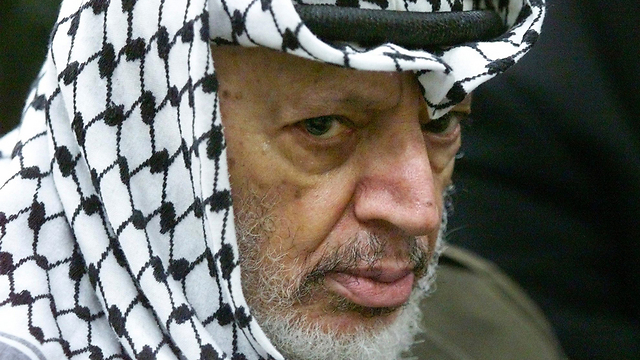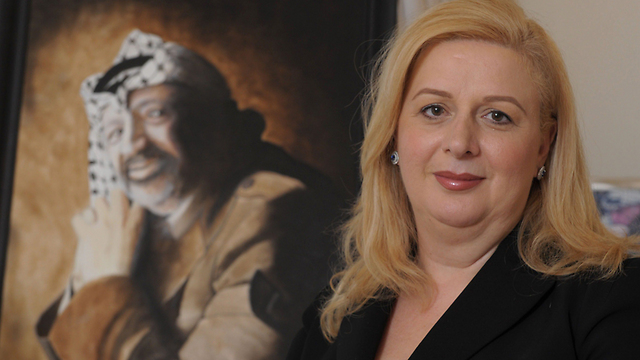
Lawyers for Arafat's widow seek continuation of French murder inquiry
Attorneys oppose decision to close investigation into claims the Palestinian leader was murdered by Israel, after failing to find new evidence of foul play.
Many Palestinians believe that Israel poisoned Arafat, with the complicity of people in his entourage.
"We do not approve of this decision... and we will obviously seek further investigation," said Suha Arafat's lawyers, Francis Szpiner and Renaud Semerdjian.
On Tuesday, judges reexamining evidence surrounding the historic leader's death wrapped up their investigations.
The prosecutor now has three months to prepare his submissions on whether to dismiss the case or forward it to court.
In the meantime interested parties can produce written depositions. However if, as is currently the case, there is no defendant's name attached to the proceedings, the case is likely to be dismissed.
"With all due respect to the judges and the prosecutor, no-one can say what Yasser Arafat died of nor explain the circumstances of his death," his widow's lawyers told AFP.
"This element alone means the inquiry should continue," they said, adding that they were "shocked at the speed" with which the investigation was closed.
Arafat died aged 75 on November 11, 2004, at the Percy military hospital in Clamart, close to Paris.
He was admitted there after developing stomach pains at his headquarters in the West Bank city of Ramallah, where he had lived since December 2001, surrounded by the IDF.
Arafat's widow Suha lodged a complaint at a court in Nanterre near Paris in 2012, claiming that her husband was assassinated. The complaint triggered a murder inquiry.
The same year, Arafat's tomb in Ramallah was opened for a few hours allowing French, Swiss and Russian investigators to collect samples from his remains.
French experts reexamining evidence had in March confirmed their earlier conclusion that Arafat's death was not the result of poisoning.
The prosecutor for the western Paris suburb of Nanterre said the experts found there was no foul play in Arafat's death, which sparked immediate and enduring conspiracy rumors.
A university in the Swiss city of Lausanne tested samples taken from his belongings given to his widow after his death in Paris, and found "abnormal levels of polonium", but stopped short of saying he had been poisoned by the extremely radioactive toxin.
French experts believe the polonium-210 found in his grave and remains was environmental in nature, Nanterre prosecutor Catherine Denis said last month.
Polonium-210 became famous in 2006 when a fugitive Russian intelligence officer turned opponent of President Vladimir Putin, Alexander Litvinenko, was killed in London by a strong dose of the hard-to-get radioactive isotope.












